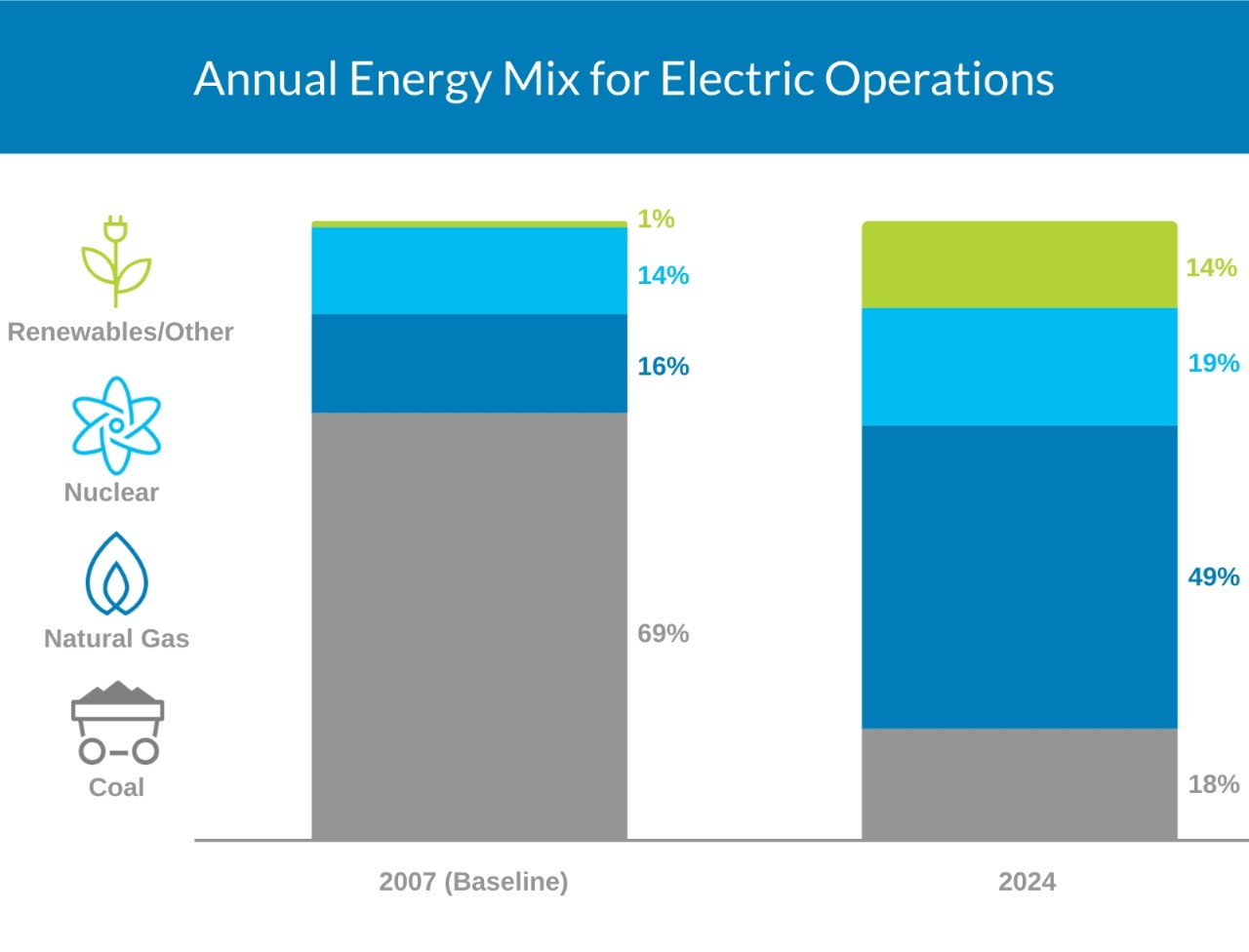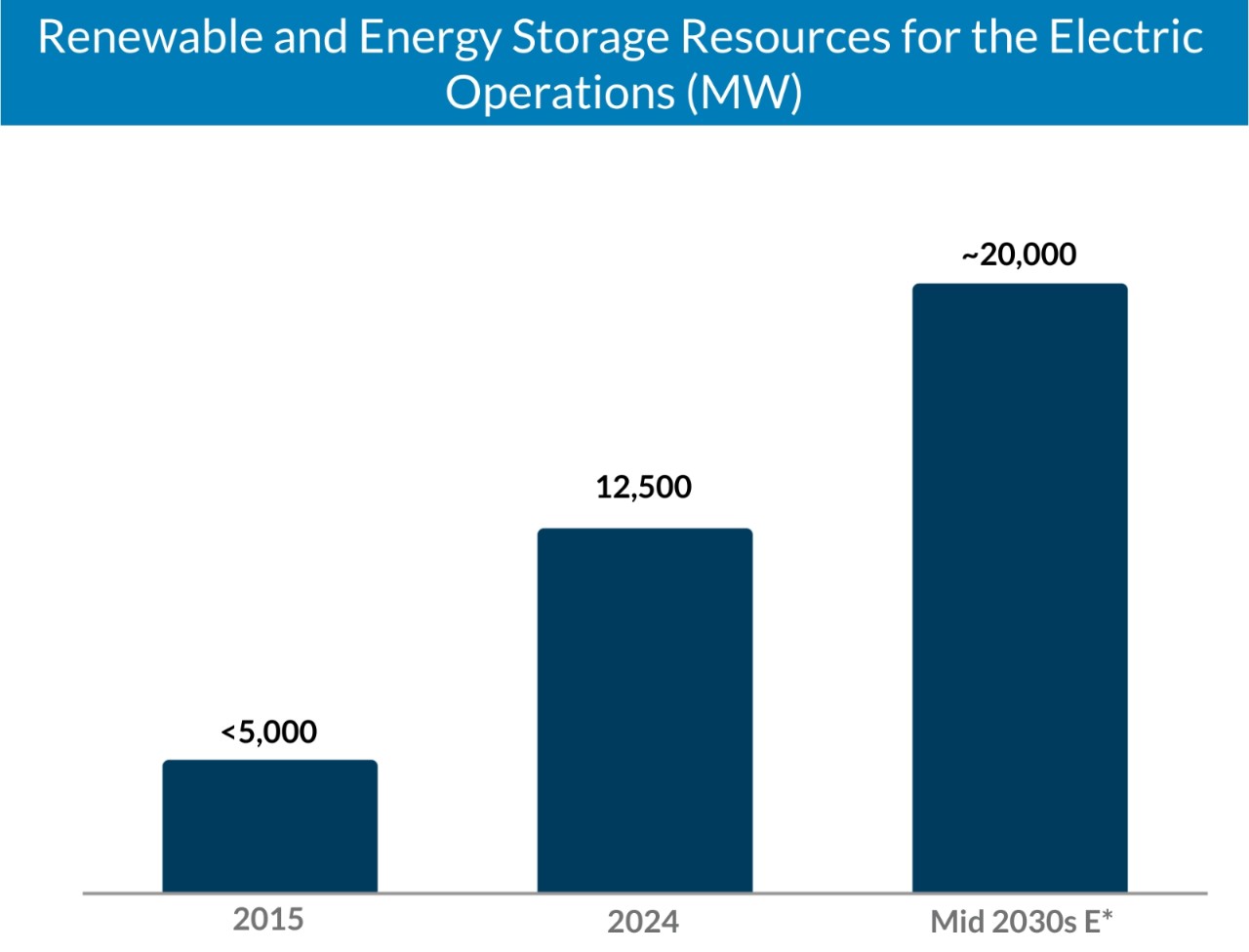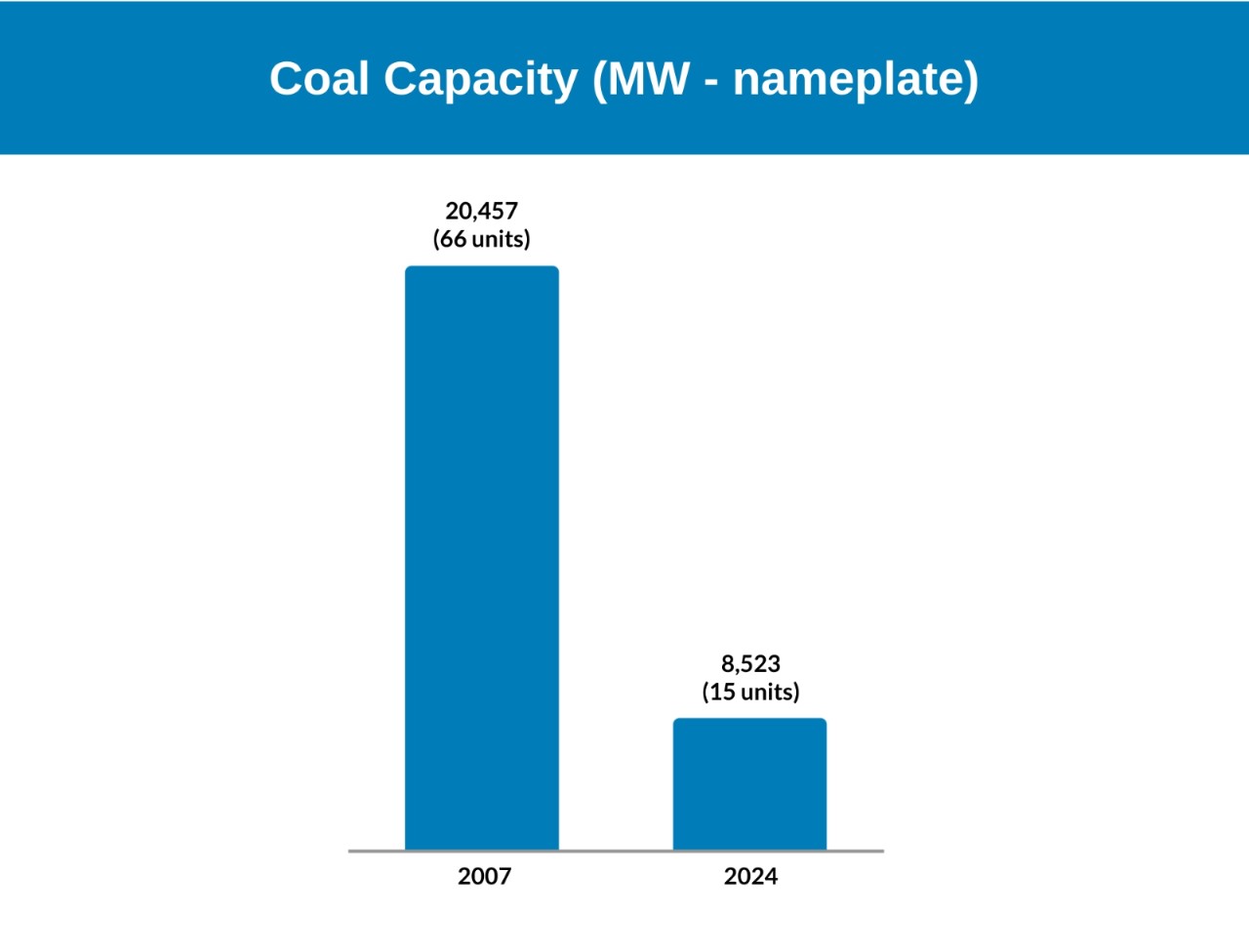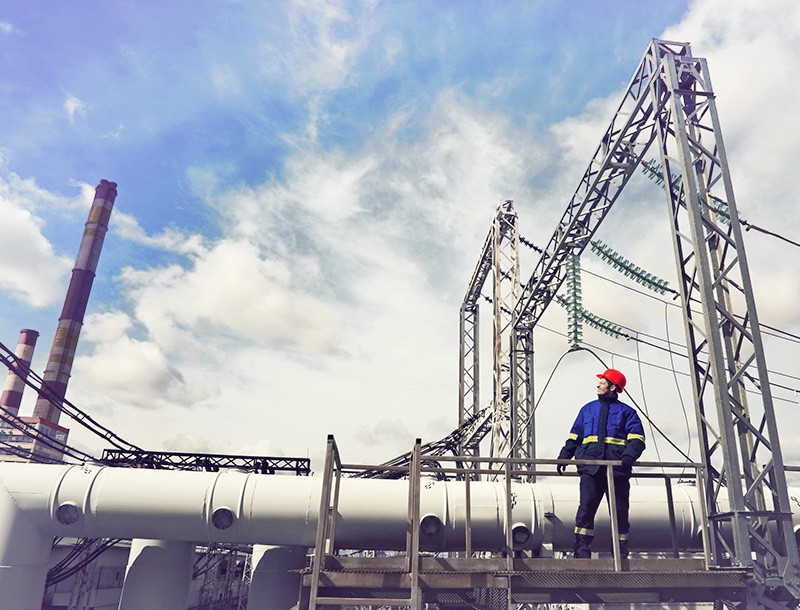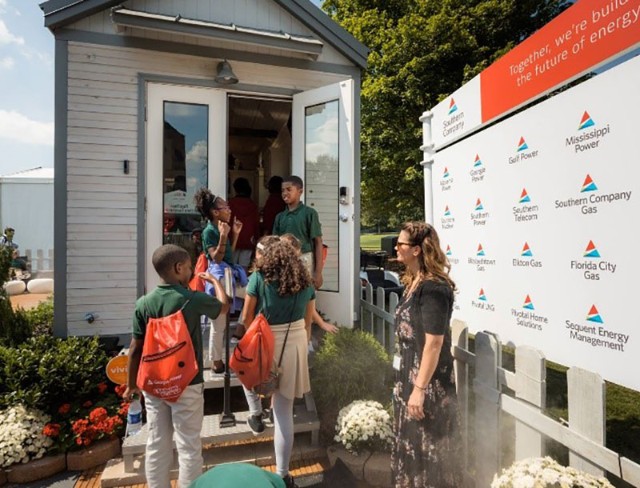Building a resilient, clean energy future
Energy for Our Future
Providing clean, safe, reliable and affordable energy to customers is fundamental to Southern Company’s mission. We are transforming our business as we build a diverse energy portfolio, develop innovative programs and services for our customers and research new clean energy technologies.
Our strategy includes the following:
- Efficient use of natural gas
- Continued assessment of coal-fired generating assets, with the use of environmental control technologies
- Further growth in our portfolio of clean energy resources, including nuclear energy, renewables, hydroelectric power, renewable natural gas and energy storage
- Continued deployment of modern energy distribution systems that adapt to changing conditions to serve customer needs
- Enhanced demand response, energy efficiency initiatives and distributed energy resources
- Continued investment in research and development of emerging clean energy technologies, including carbon capture, storage and sequestration and advanced nuclear

Data and Reports
Greenhouse Gas Emissions Reduction Across the System
We have established a greenhouse gas reduction goal of net zero by 2050. In addition to our efforts to reduce direct emissions (Scope 1), across the Southern Company system we are working with upstream fuel suppliers and downstream customers to reduce indirect (Scope 3) emissions.
Southern Company GHG Emissions
Through 2024, Southern Company has reduced Scope 1 GHG emissions by 49% relative to our baseline year of 2007. Approximately 70% of our emissions profile is comprised of Scope 1 emissions, followed by our Scope 3 emissions at approximately 30%.
Resource Planning for Electric Operations
In 2024, approximately one-third of our enterprise-wide annual energy mix for the electric operations was from clean energy resources.
We expect to have approximately 20,000 megawatts (MW) of renewable and energy storage resources in our portfolio by the mid-2030s (estimate).
Since 2007, we have reduced our coal nameplate capacity to 8,523MW for 15 units.
Infrastructure Investment for Natural Gas Distribution

Our natural gas distribution businesses are investing to modernize our pipeline infrastructure, deploy advanced leak detection and repair technology, and incorporate lower emission fuel sources to reduce methane emissions and increase safety.
We have replaced over 6,000 miles of unprotected steel and cast-iron pipes with state-of-the-art corrosion-resistant pipes, while also replacing over 800 miles of pre-1974 plastic pipe. One hundred percent of known legacy cast or wrought iron pipes in our distribution system have been replaced.
We employ innovative leak detection technology to identify, quantify and ultimately reduce the emissions footprint of the natural gas we deliver, while bringing additional operational and safety benefits to our customers and employees. As a result of these efforts, we have significantly increased leak repairs across our footprint and reduced active leaks by over 75% since 2018.
We are pursuing opportunities and investing in projects to accelerate the adoption of renewable natural gas (RNG), a sustainable fuel produced from naturally occurring waste methane emitted primarily from landfill, agricultural, wastewater and food waste sites. In 2024, Nicor Gas launched its inaugural RNG interconnection with Air Liquide’s largest RNG facility in Rockford, Illinois. The facility converts biogas from the Winnebago Landfill into energy, producing an estimated 1.3 million MMBtu annually. Virginia Natural Gas and Chattanooga Gas initiated RNG agreements to acquire environmental attributes in 2023, which were expanded in 2024.
As a founding member of ONE Future, our company is helping to identify emissions reduction improvement opportunities to achieve a rate of methane emissions of less than 1% of total production across the industry. For 2024, Southern Company Gas’ methane intensity rate was 0.197%, below ONE Future’s 2025 goal of 0.44% for natural gas utilities and 0.225% for the Distribution segment.
Connect with our team to learn more
- Renewables/Other category includes wind, solar, hydropower, biomass, and landfill gas.
- Energy mix percentages include non-affiliate power purchase agreements.
- Energy mix represents all of the energy the Southern Company system uses to service its retail and wholesale customers. It is not meant to represent delivered energy mix to any particular retail customer or class of customers.
- With respect to renewable or other carbon-free generation and associated renewable energy credits (RECs) or other environmental attributes, to the extent an affiliate of Southern Company has the right to the environmental attributes it generates or purchases, it retains the right to sell the energy and environmental attributes, either bundled or separately, to retail customers or third parties.
Renewable resources include hydropower, solar, wind, biomass and landfill gas. Energy storage includes battery storage and pumped-storage hydroelectricity.
Includes both owned and contracted resources, with full (100%) MW capacity accounted for in jointly owned projects. With respect to renewable or other carbon-free generation and associated renewable energy credits (RECs) or other environmental attributes, to the extent an affiliate of Southern Company has the right to the environmental attributes it generates or purchases, it retains the right to sell the energy and environmental attributes, either bundled or separately, to retail customers or third parties.
*Future estimates are based on prior regulatory approval and could change due to a range of factors including tax policy, supply chain variables and environmental policy or regulations.
